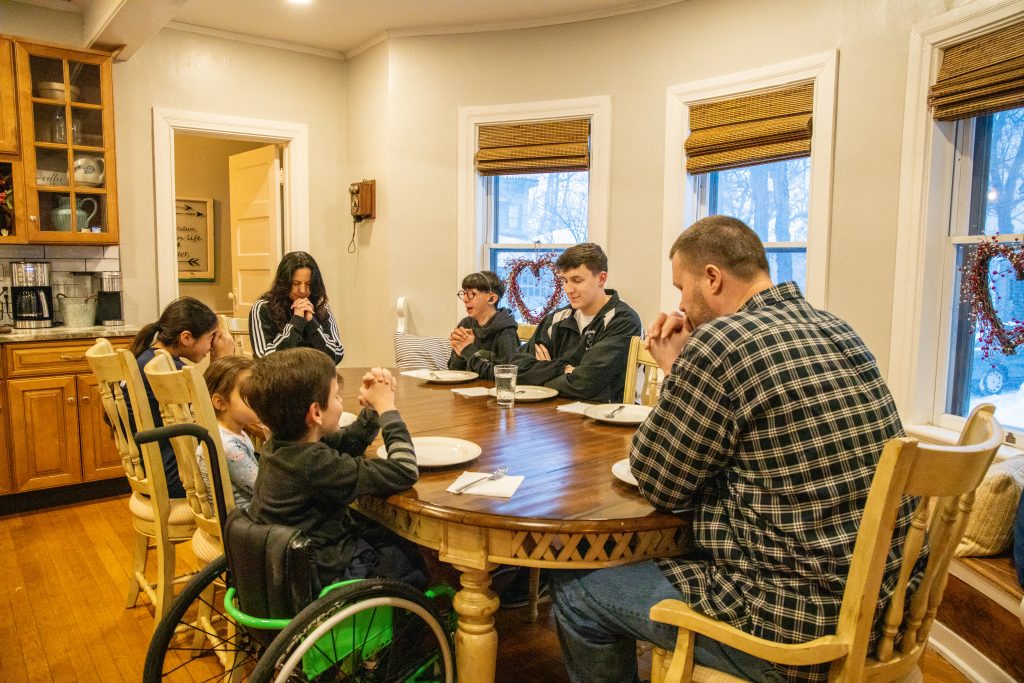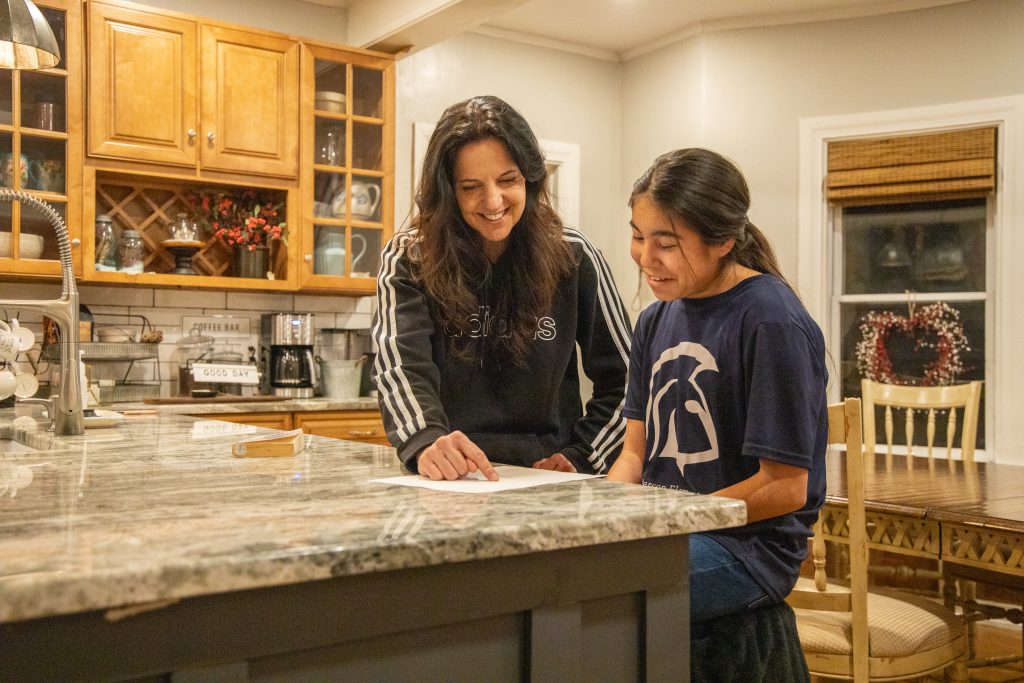A Global Calling
In 2010, Darren was teaching full time and Stacey had begun working part time while they raised their five children and continued to foster. With the cost of living in Arizona and their large family, they needed more income. Stacey went back to school, earned a nursing degree in 2013 and began working in the ICU. Her own experiences caring for children with trauma and extreme medical needs continued to be refined, so when she heard that about 80% of children with disabilities in eastern Europe die within the first five years — and if they don’t die are moved into adult institutions — she couldn’t believe it.
Darren and Stacey began to research the statistics and believed God was calling them to advocate for these children.
“We thought we could convince someone else to travel there and see what’s happening and become part of the solution, but it turns out no one would!” says Stacey. Darren’s solution: “Let’s go ourselves.”
Stacey soon boarded a plane for Bulgaria to meet their little boy. She knew that based on her research, what she would see at the orphanage would be horrendous. “But I’d already seen so much trauma between the medical foster care work and working in the ICU,” recounts Stacey. “I thought, ‘I can handle this.’”
A Heart Awakened
When Stacey arrived at the orphanage, it was a crumbling building that held between 300-400 children and was eerily quiet. When she met her son, Israel, she couldn’t believe her eyes. He was a skeleton with rotting teeth, unable to speak, with spina bifida and autism. All he did was scream.
When she got back to her hotel room, she lay on the floor of the bathroom crying out to God. “There is no way. I can’t do this. This is insane. This child will destroy our lives,” she remembers.
The next day, when she returned to the orphanage, she was taken back to his room. The section of the orphanage where her son was living was labeled “Malformations” and consisted of glass-walled rooms. “It’s completely quiet and sterile,” describes Stacey. “I walk into my son’s room, and he’s tied up in his crib just swaying. I can see other kids in other rooms banging their heads on walls. It’s the most horrifying thing I’ve ever seen in my entire life.” She was about to see worse. The staff proceeded to take her to what was known as the “dying room.” It was lined with beds and cribs with bodies in active states of dying. “These children are here to die,” she was told.
“I wanted to run screaming from the building,” says Stacey. “That was when God changed my vision for the world. That was the day that I became responsible to act. I knew my life was to be spent getting the word out and being a voice for the voiceless.”
A Voice for the Voiceless
Darren and Stacey eventually brought Israel home, and Stacey began using her voice to raise awareness through her blog “Ransom for Israel.” They also started the nonprofit, Lost Sparrows, in 2017 which supports families who want to adopt children or who have adopted children and provides training and education to families, educators and health professionals around children with trauma and disabilities.
Israel is now a third grader, attending the local elementary school, talking and writing and thriving. And Darren and Stacey thought they were once again done.
A year after Israel was home, they heard about another child in the same orphanage who was missing her left arm and right leg below the knee. Once again, the Gagnon’s invoked their mantra: “We have room for one more.” It turns out that when Stacey went to pick up Israel, Zorey, their eventual daughter, was four months old, lying right across the hall from Israel. Zorey came home to the Gagnons in 2018. “She’s five now, has a prosthetic leg and can run and jump and do it all!” says Stacey.
Darren and Stacey are brutally honest about how hard fostering and adopting are. Stacey’s blog has gained tens of thousands of followers and brought them national attention because of their transparency.
They were recently featured on “The Today Show” and interviewed by Focus on the Family. “These platforms allow us to be a voice for these children. They allow us to shine a light on what we don’t want to see. And we hope to nudge the church a little bit,” says Stacey.






